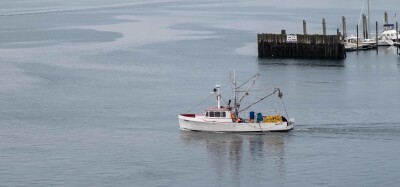On a typical mission, Kimberly Warner would go to a restaurant. After browsing the menu, she always picked a seafood dish. She made casual conversation with her dinner companions and took mental notes of her meal. When the waiter wasn’t looking, she would snatch a marble-sized, sauce-soaked sample and slip it into her purse. Mission accomplished.
As far as covert operations go, seafood sleuthing isn’t the most glamorous work—but that doesn’t bother her. “I feel like a real detective,” says Warner, the lead scientist in a 2012 study on mislabeled fish by Oceana, an ocean conservation group. The fruits of Warner’s stealth proved disheartening: Oceana reported that 33 percent of fish it tested in American restaurants and markets were impostors, products of seafood fraud.* At these volumes, such fraud, committed knowingly or not, is swindling Americans out of up to $25 billion annually.
Read the full story at The Atlantic>>
Want to read more about seafood fraud? Click here...






